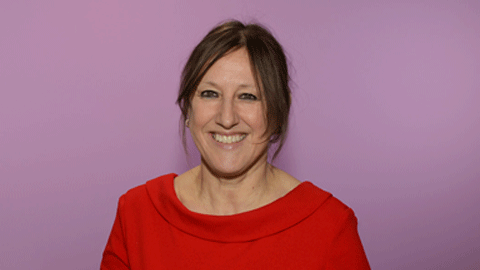
For our second “Ideas on Europe” editorial, we have the pleasure to welcome today Helen Drake, Director of the Institute for Diplomacy and International Governance at Loughborough University London.
Helen, you wanted to speak about Franco-British diplomacy and what it tells us about how to get on – or not! – with the neighbours.
Let me quote Boris Johnson first: “Donnez-moi un break!”, is what the Prime Minister said on a trip to the USA in September 2021 That is not the French language as we know it. At best, it’s “Franglais”. At worst, well, it’s the Boris Johnson doing what he does best: making jokes of the serious business of diplomacy.
“Donnez-moi un break!” What was he talking about?
He was indirectly addressing his French counterpart Emmanuel Macron, telling him to give the UK a break, to ‘get a grip’ (“prenez un grip”) about an international development that had rudely disrupted Franco-British relations.
That development goes by the name of “AUKUS”: a new defence pact concluded between the US, Australia and the UK which, in the making, broke a huge commercial contract between France and Australia for the construction of submarines. Both the substance and the manner of AUKUS triggered highly undiplomatic language and conduct on the part of the French: they recalled their ambassadors to the US and Australia, spoke of the UK’s ‘permanent opportunism’ and icily dismissed the UK’s role as the fifth, i.e. superfluous wheel on the AUKUS carriage. Johnson’s would-be jokey reference to the whole affair was intended to smooth ruffled feathers – by bringing the French back down to size.
And, did it work?
Not really. We’ve seen another French minister, Clément Beaune, suggesting that France might cut off the UK’s power supply by withholding the export of its surplus electricity; or decline to export sufficient turkeys for the UK’s Christmas tables. Gérald Darmanin has asked the UK to pay up what they have promised the French in support of their efforts to prevent irregular migrant crossings from the French coast across the English Channel, as it’s called in the UK.
So what’s really going on?
In a word, Brexit or rather, the aftermath of the so-called ‘hard’ Brexit that was agreed in the form of the December 2020 Trade and Cooperation Agreement (TCA) between the UK and the EU.
Let’s look more closely at the impact of this on Franco-British diplomacy. It has been a diplomatic earthquake – I’m thinking here of the vote to Leave itself, in June 2016 - followed by a series of aftershocks. The Franco-British bilateral relationship had been conducted largely within the EU for the best part of 50 years, and the UK’s departure was going to seriously disrupt that habit. In the Brexit negotiations themselves, France had to take sides, and it picked the EU, not the UK. “But we thought we were friends!”, wailed one UK diplomat as France shaped its hard lines in the Brexit talks.
The TCA itself has also left many loose ends and flash points for conflict across the Channel: on fishing rights, for example; and on the now notorious Northern Ireland protocol where the UK government is, from a French perspective – and in reality – going back on its word and acting in mauvaise foi.
Behind Brexit itself is the UK’s strategic quest for a ‘Global Britain’, a journey on which the AUKUS pact was but one step, and which will inevitably bring about an overhaul of the current security and defence cooperation arrangements between France and the UK. Behind all this is a bigger geopolitical picture where the rules-based liberal order is perhaps in its final phase: cracked further still by the ‘Tweet Diplomacy’ of the Trump years and the Covid pandemic restrictions on the usual diplomatic channels for building mutual trust and social capital between parties.
In sum, this neighbourly dispute was about a clown disguised as the British Prime Minister. It was about the long-running saga of Franco-British relations. It was about Brexit, about Global Britain and about diplomacy in a world order where rules, certainties and trust are all in question.
Many thanks, Helen, for this analysis! We understand that you are not optimistic for the near future.Next week, we’ll welcome your colleague Borja Garcia. In the meantime, we really hope you’ll find a turkey for your Christmas dinner!





